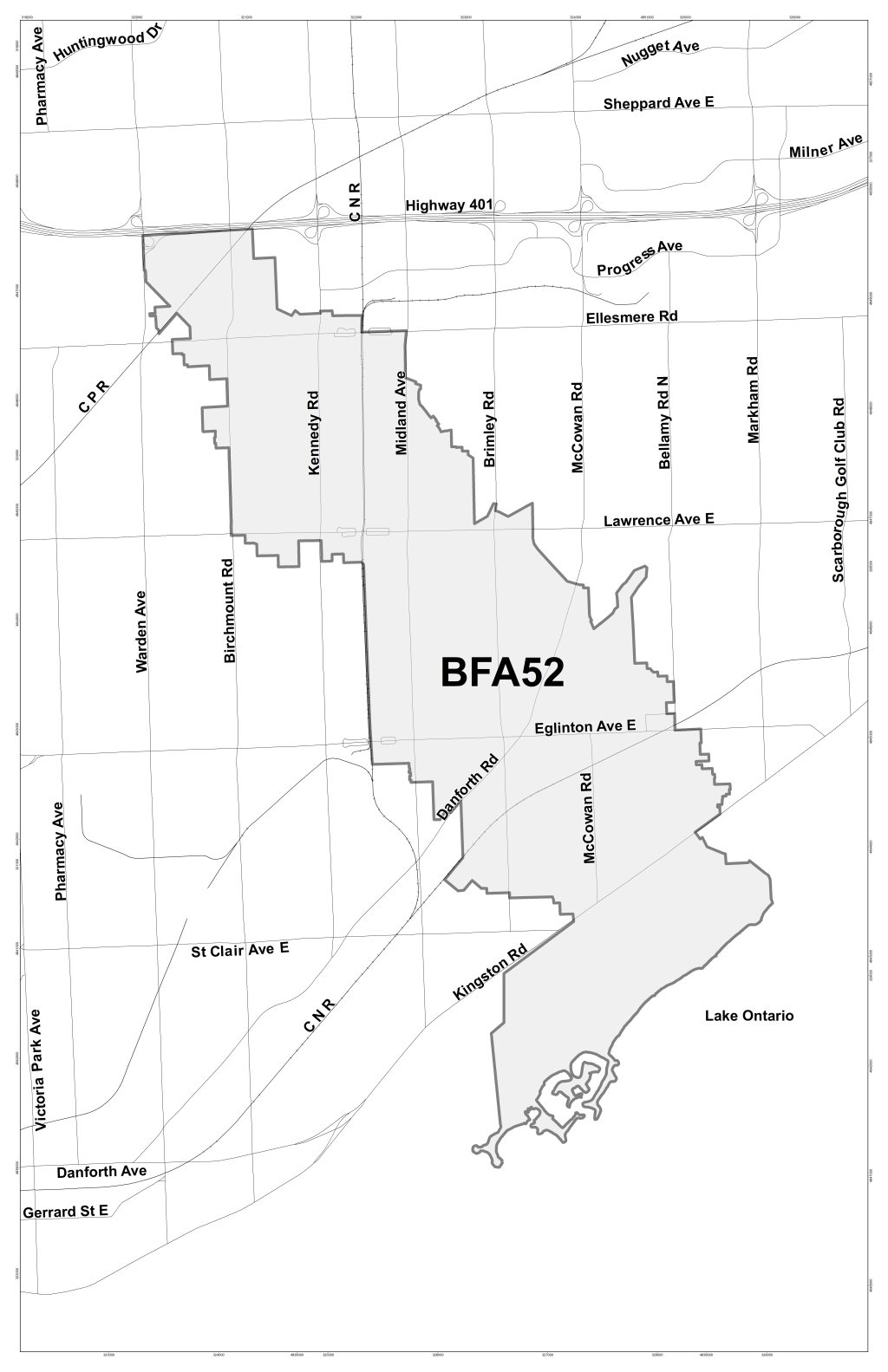
Study Area 52 is located in the south Scarborough area roughly bound by Highway 401 at the north, Warden Avenue/Kennedy Avenue on the west, Brimley Avenue/Bellamy Road on the east and Lake Ontario to the south.

While we aim to provide fully accessible content, there is no text alternative available for some of the content on this page. If you require alternate formats or need assistance understanding our maps, drawings or any other content, please contact us at 416-397-5559 or email floodingstudy@toronto.ca.
During extreme rainfall events, sewers and drainage systems can become overloaded, which can lead to basement and surface flooding. In 2013, City Council approved the development of comprehensive plans across 67 study areas in the city to reduce the risk of flooding. The study for area 52 began in 2022.
City staff have studied the factors that contribute to surface and basement flooding in the area, and have developed recommended solutions to address these issues.
Following the Municipal Class Environment Assessment process for planning and designing municipal infrastructure, this study has recommended potential improvements to the sewer and drainage system that could be made within the City’s right-of way or City property, such as parks and ravines.
Each property owner is responsible for drainage systems on private property, including operations and maintenance. This includes:
The City is recommending the following solutions to address surface and basement flooding in the area:
Where solutions are located outside of the City’s right-of-way, the City has evaluated alternative solutions for sewer system improvements.
The recommended solutions are not yet funded by the City. Further detailed engineering work must be completed to confirm project details, which may take a number of years to complete. This detailed engineering work and funding approval would be needed before any construction takes place.
The Public Drop-In Event was held on Thursday, June 27, 2024 from 6 to 8 p.m. at St. Albert Catholic School, 1125 Midland Ave, Scarborough. This event provided an opportunity to view the project information panels and speak with members of the project team one-on-one.
While we aim to provide fully accessible content, there is no text alternative available for some of the content on this page. If you require alternate formats or need assistance understanding our maps, drawings or any other content, please contact us at 416-397-5559 or email floodingstudy@toronto.ca.
The study followed the Master Planning Approach #2 of the Municipal Class Environmental Assessment and satisfies the requirements for the Schedule B projects.
A Master Plan Study report was available for a 30-day review period from November 7 to December 7, 2024. See the Notice of Study Completion for details.